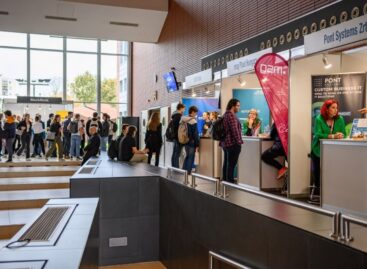More food is needed, with sustainable and environment-friendly solutions
Bajai Ernő's report from Grüne Woche tradeshow
New players have joined the focus of the food world market. Since the demand is growing, China and Brazil entered the market as a purchaser, while the grain production of Russia, Ukraine and Kazakhstan will become an increasingly important factor in the international agricultural policy. This is reflected in the world's largest food trade fair Grüne Woche.
 Within the compass of Saturday's Agricultural Policy Summit, Ministers of Agriculture from 64 countries, including Hungary's Sándor Fazekas have come together to discuss the development of new directions.
Within the compass of Saturday's Agricultural Policy Summit, Ministers of Agriculture from 64 countries, including Hungary's Sándor Fazekas have come together to discuss the development of new directions.
The event itself has opened its gates on Friday, with 1624 exhibitors from 59 countries. Grüne Woche will be open until next Sunday, with an audience of over 300 thousand people.
This time, Hungary is represented by seventeen medium-sized- and small businesses, in 270 square meters. Hungarians mainly sell sausages, salami, schnaps and wine at the area offered by Agrármarketing Centrum.
Zoltán Kiss is in charge of the Hungarian cuisine sector, as the leader of the debuting Budapest Bistro. He believes that the event is highly successful as most visitors are looking for traditional Hungarian specialities.
It was also stressed out that farmers and producers must rely on sustainability in agriculture and food industry, as 1 billion people on Earth are starving. Journalists wondered who would pay for the costs of sustainable and environment-friendly solutions, which is a matter of further discussions.
You can read more interesting details about Grüne Woche in the next issue of Trademagazin.
Related news
Related news
40 secure jobs, sustainable solutions – new BURGER KING® in Csepel
🎧 Hallgasd a cikket: Lejátszás Szünet Folytatás Leállítás Nyelv: Auto…
Read more >The Store of the Future opens again at the SIRHA Budapest exhibition! (Part 1)
🎧 Hallgasd a cikket: Lejátszás Szünet Folytatás Leállítás Nyelv: Auto…
Read more >





